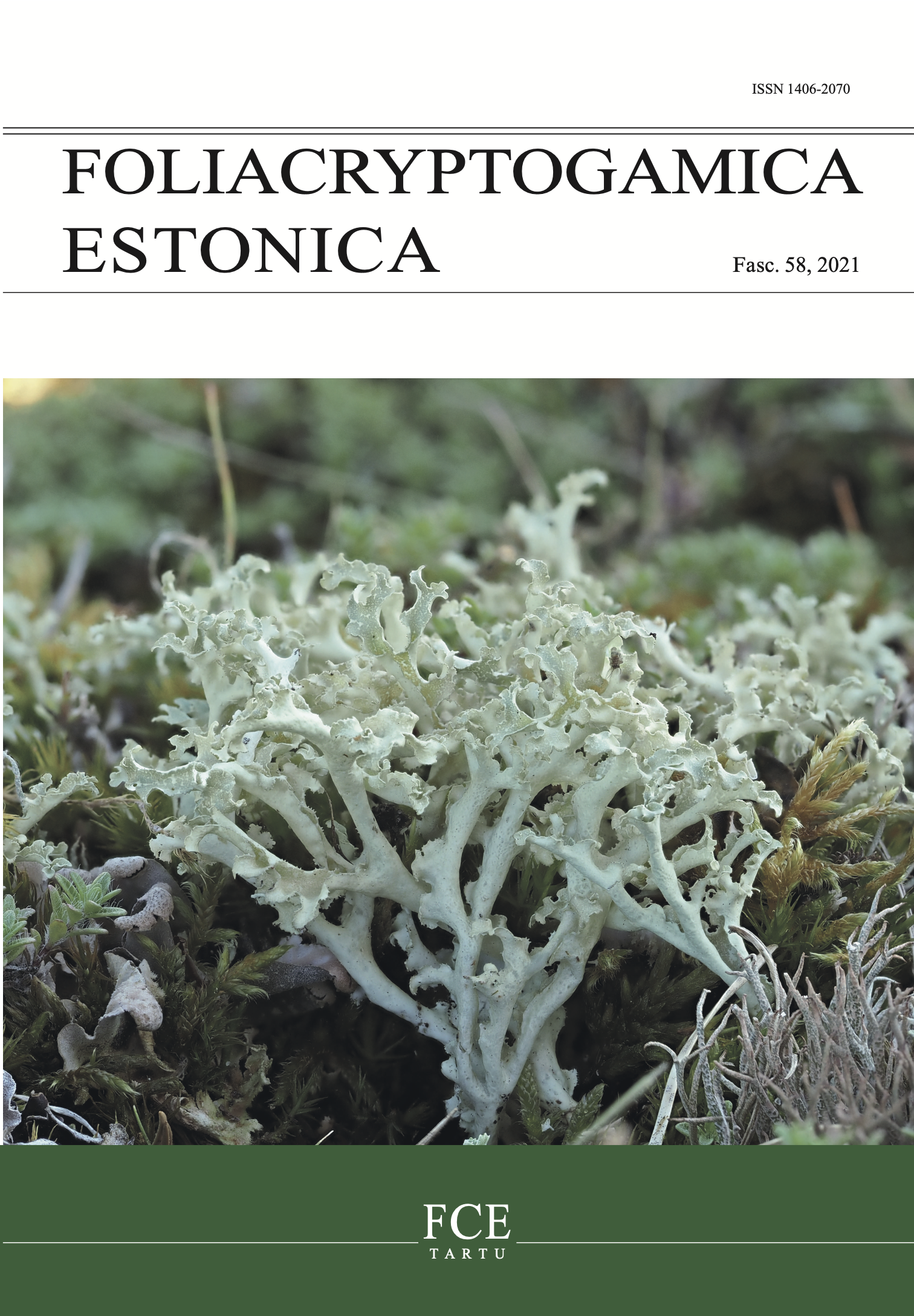Bryoerythrophyllum alpigenum (Bryophyta, Pottiaceae) confirmed in the moss flora of Poland, with a review of the nomenclatural issues associated with this species name
DOI:
https://doi.org/10.12697/fce.2021.58.01Keywords:
Carpathians, Didymodon, distribution, diversity, nomenclature, Musci, rare species, Tatra Mountains, taxonomyAbstract
Occurrence of Bryoerythrophyllum alpigenum (Jur.) P.C.Chen in Poland is confirmed. The species is known from a single record from the Western Tatra Mountains in the Polish Western Carpathians. A description and illustrations of the Polish material of this species is provided and its distribution mapped. Taxonomic and nomenclatural comments on B. alpigenum are presented and its global geographical distribution is reviewed. This species was first recognised as a variety, Didymodon rubellus var. dentatus Schimp., in 1860 by W. P. Schimper. It was subsequently described in 1882 by J. Juratzka as Didymodon alpigenus Jur., and its name should be ascribed to Juratzka alone, not to Venturi as suggested in Index muscorum and D. alpigenus Jur. is the basionym of Bryoerythrophyllum alpigenum. The epithet alpigenus appeared in the literature for the first time as Trichostomum alpigenum Venturi in Pfeffer’s work of 1869 dealing with the mosses of the Rhaetian Alps, but the name was not validly published under Art. 36.1, because Pfeffer did not accept it. Likewise, the name Didymodon alpigenus was not validly published by Venturi ten years later under Art. 38.1, because no description or diagnosis or a reference to a previously and effectively published description or diagnosis were provided. The current statistics of the moss flora of Poland is given. Since the publication of the catalogue of Polish mosses in 2003, some 17 species, one subspecies and three varieties of moss have been added to and two species were excluded from the moss flora of Poland, so currently some 715 species, nine subspecies and 90 varieties are known to occur in the country.


